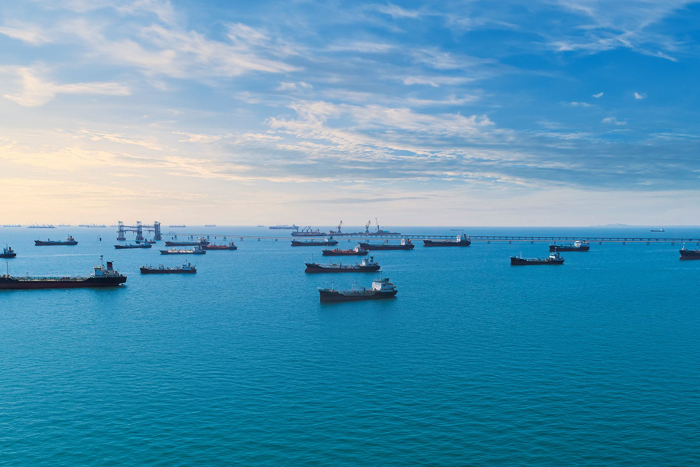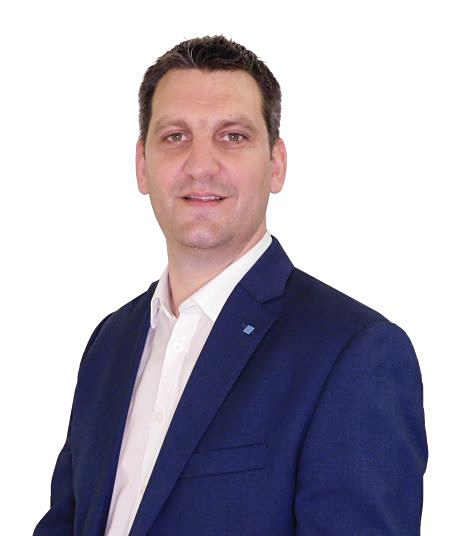The continent of Africa offers many new opportunities for innovation and growth. Its population is one of the youngest and fastest-growing in the world, and is becoming increasingly urban and energy-hungry. The International Energy Authority is predicting Africa will become 'a major player in natural gas as a producer, consumer and exporter’. It’s also ripe for renewables, especially solar power, which could bring reliable supply to areas struggling with the offering from conventional grids.
The impact of the pandemic has not halted LR’s drive to reinforce its ties with Africa, led by the enthusiastic Goz Gwam, Business Manager for Sub-Saharan Africa. The highly motivated UK-trained shipping and energy expert, who spent five years working in various assurance roles in Aberdeen, Scotland, is now pioneering LR’s initiatives across the continent. Gwam is particularly proud of the classification’s new partnership with Chevening, the UK Government’s international awards programme. Funded by the country’s Foreign, Commonwealth and Development Office, Chevening offers awards for scholarships and fellowships to applicants selected by British Embassies and High Commissions across the world. LR has become a Chevening partner and is funding two scholarship places for applicants from Nigeria and Mozambique. The initiative, Gwam explains, is a clear sign of the LR’s commitment to human capital in Africa’s maritime and energy sectors, assured to LR’s global standards. For this, he says, the educational development of the continent’s human resources is pivotal. “It’s a clear indication of the importance we attach to investment in human capital and the transfer of skills across our fields of expertise. Human resource development has always been a key component in our DNA and that is particularly relevant here in Africa where our experience is unbeatable. Our ties with the continent go back many generations.”
“Lloyd’s Register is proud to become a Chevening partner. We look forward to connecting with the brightest and best from Mozambique and Nigeria, providing educational opportunities for tomorrow’s change-makers so we can drive sustainable change with the marine and offshore industries.”
Gwam believes that in a counter-intuitive way, COVID-19 has generated a whole range of new opportunities in African shipping and energy classification and assurance, as a result of rapid technology developments, particularly in communications. He cites remote surveys as an example. And in Africa, this new approach to asset assurance offers great potential. Using the latest connectivity technology, assets on land and sea can be surveyed remotely, with LR experts fully engaged, but sitting in Lagos or Maputo, or in London or Singapore, for that matter.
Drones can be deployed on aerial and subsea surveys, pipeline inspections, and even hard-to-access internal spaces. Connectivity advances also provide new opportunities in continuous professional development and, in a wider context, in education and career development across the continent generally. Gwam firmly believes that LR is poised to embark on a new phase of African business development in sectors including energy, national and commercial fleet development, ship management, shipbuilding and repair. Central to all of these opportunities will be LR’s top business drivers – decarbonisation and sustainable development will be core elements of the activities, he says.
"We look forward to connecting with the brightest and best from Mozambique and Nigeria, providing educational opportunities for tomorrow’s changemakers."
LR supports NLNG with permanent training programme
In 2019, Nigeria LNG (NLNG) celebrated 20 years of operation and 30 years of incorporation. The first cargo of LNG was exported from Bonny Island in 1999 and, since then, close to 5,000 shipments have left the facility, bound for destinations including Japan, South Korea, Spain and Mexico. Over much of this time, LR has provided a range of training courses for NLNG personnel.
In its latest phase of development, NLNG signed a $3 billion contract in May 2020 to finance the seventh LNG train at Bonny Island. Completion of the funding facility was highly acclaimed, coming during a year of unparalleled disruption in world energy markets. Finance providers included export credit agencies, developmental financial institutions, and no fewer than 26 international and Nigerian banks.
When the seventh train comes on stream, with commissioning scheduled to start in 2024, the country’s LNG production will be boosted from about 22 million tonnes today, to about 30 million. According to BP’s Statistical Review of World Energy, Nigeria was the world’s sixth largest LNG exporter in 2019, the most recent year for which figures are available. Although global LNG reserves are abundant, demand for the relatively clean hydrocarbon fuel is climbing exponentially. Meanwhile, gas exports are a lynchpin for the Nigerian economy.
The company, whose shareholders include the Nigerian National Petroleum Corporation, Shell, Total, and ENI, has a range of sustainability initiatives under way and has spent the equivalent of more than $12 million on developing engineering courses at six Nigerian universities. Its gas flaring reduction programme has been a notable success, resulting in the export of more than 2,000 additional cargoes of natural gas liquids and LPG which would otherwise have been emitted to the atmosphere.
LR’s engagement with the company dates from early this century when the classification society worked closely with NLNG, Bergesen and Shell on the build-up of Nigeria’s gas export sector. At the time, the world’s largest LNG carriers of the day, built at Daewoo Shipbuilding and Marine Engineering to LR class, were being commissioned. The 145,942 m3 steam turbine powered vessel class, including the LNG River Orashi, have been exclusively deployed in the export of Nigerian LNG ever since.


Classification support for Nigerian LPG venture
An all-Nigerian project to promote liquid petroleum gas (LPG) as fuel is being supported by LR, with the classification of two new LPG tankers built at Hyundai Mipo Dockyard in South Korea for local owner, E.A. Temile & Sons. One vessel, with a capacity of 23,000 m3, has already been commissioned and is shipping LPG cargoes produced at the Bonny facility, a Nigeria LNG Limited (NLNG) plant in Rivers State. A second vessel of similar size is due for delivery within the next few months. E. A. Temile & Sons finalised the newbuilding contracts with Hyundai Mipo at a signing in London. The two vessels are chartered to NLNG and the ships will be managed by NLNG Ship Management Ltd. They represent the latest stage in the company’s LPG development push.
Speaking at the London signing, NLNG managing director and CEO, Tony Attah, stressed the importance of the contract as a major step in developing the country’s LPG market, supporting continuing decarbonisation initiatives, as well as promoting the growth of Nigeria-focused enterprise. The first tanker is now transporting LPG cargoes from Bonny to Lagos. From there, they are being widely distributed across the country. “This assures the product availability, accessibility, and affordability which is central to us as a company,” NLNG said in a statement. “Our domestic LPG intervention scheme aligns with NLNG’s business focus of bringing energy to the world and helping to build a better Nigeria.”
From LR’s standpoint, the project represents a good example of its commitment to the African continent where, among a wide range of maritime-related projects, decarbonisation features as a high priority. Although LPG is, of course, still a hydrocarbon, it is a far better option than firewood, charcoal or animal waste, all of which are widely used for cooking and heating in poorer regions of the continent. Illness resulting from such air pollution leads to widespread disease and millions of deaths across the continent. Nigerian data alone indicates that about 100,000 women and children die annually across the country as a result of using these fuels. Using LPG, rather than these basic carbon-heavy fuel sources, would make an instant and substantial contribution to carbon emission reductions







